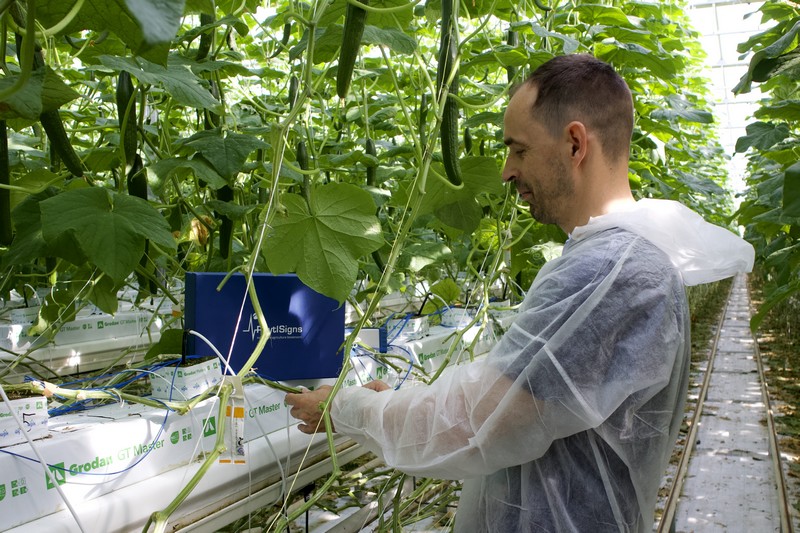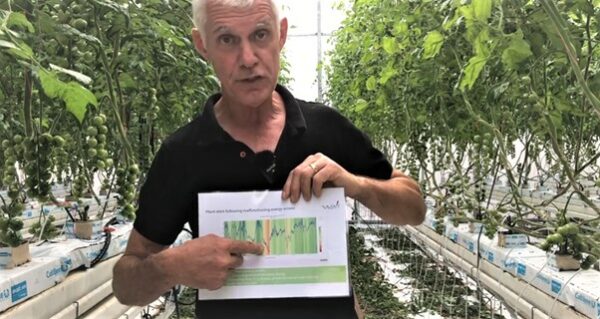
András Szabo, Zeiler’s Head Grower, receives alerts when plants are stressed through Vivent biosensors
Vivent’s innovative biosensors detect stress signals in the plant’s internal network long before visible symptoms appear. Monitoring crop health in real-time shows when plants are growing productively or when they are stressed and underperforming, adapting to disease, pests, or other suboptimal conditions. Growers can now receive real-time alerts directly from their crops when their plants are stressed using Vivent’s biosensors.

András Szabo, Chief Grower at Zeiler’s Hungarian tomato and cucumber operations, has been receiving Vivent’s plant alerts and said: “The plant alerts are perfect. I can see exactly when stress is occurring, and we are exploring ways to minimize the impact of these hours. This has opened new horizons in the management of our crop.”
Worst 1%
“Growers can now take action to discover their plants’ unrealized potential and eliminate hidden stress periods which have a detrimental effect on yield,” the team at Vivent explains. Thousands of hour-by-hour plant days simulations show that limiting the number of hours of plant stress during the crop cycle has a huge impact on yield. The worst 1% of total growing hours in a crop cycle can significantly reduce yield.” Vivent can assist in removing these sub-optimal hours and thus increase yield by 10% or more. Vivent’s biosensor identifies these hours and events and alerts growers to take action to minimize their impact on crop yields.
Beneficial stress
According to the Vivent team, some stress is beneficial, and some isn’t. “Some of it is inevitable such as when harvesting or de-leafing. With Artificial Intelligence and Machine Learning, these inevitable hours are filtered out. How do growers accurately know when and how many suboptimal hours there are in their crops and how detrimental these hours are? Vivent’s biosensors and Plant Alert service allow growers to know precisely when periods of stress start and finish. The grower receives real-time alerts by email or text message generated by the plants themselves as they enter a stressful period. A second alert notifies the grower when these periods of stress end.

Ab van Marrewijk, head grower of the Tomatoworld Field Lab, which demonstrates data-driven growing and robotics, said: “I did not believe it, but last week we forgot to close the energy screen, and the plants became stressed during the night, and we received signals that they were not happy. This helps us see in real-time what happens when plants are not in an optimal situation, which will help us reach our plants’ full potential.”
Carrol Plummer, CEO of Vivent, commented: “We are delighted at the response of growers to real-time plant alerts. It is great to see measurable improvements to growing practices over time. We are very pleased to see that our algorithms and biosensors pick up the plant signals in greenhouse crops and are contributing to plant-driven crop management. We believe this is a missing link in crop management today. Growers can gain significantly by understanding stress levels in their plants on an hour-by-hour basis, identifying the causes of this unrealized potential, and taking action to optimize conditions.”
Vivent is keen to work with more growers and would be delighted to provide additional information.
Publication date:
Author: Arlette Sijmonsma
© HortiDaily.com



